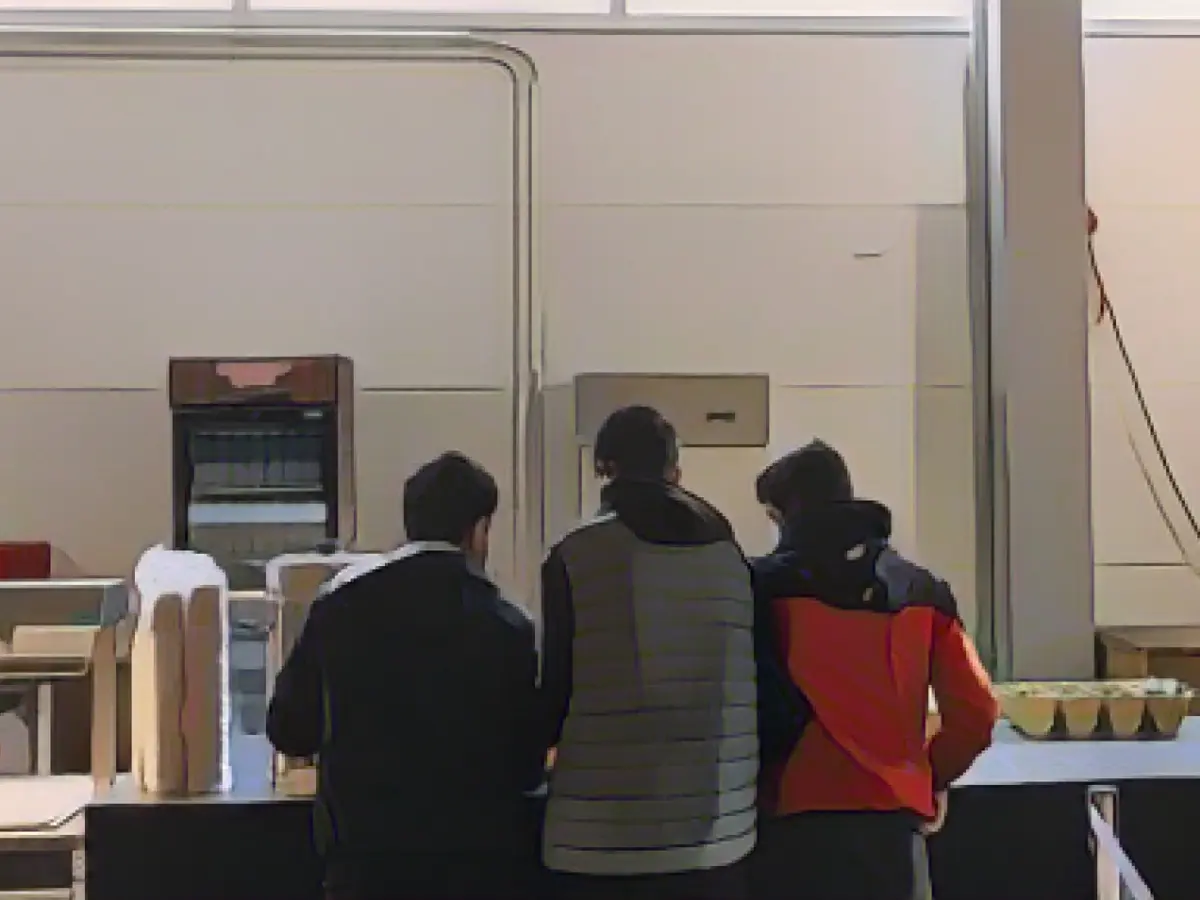Supporting the Invisible: "männlich.jung.geflüchtet" Extends to 2024
Young men, often overlooked due to their substance issues, will continue to receive specialized aid in Baden-Württemberg, as the "männlich.jung.geflüchtet" project stretches its lifespan until 2024. Incorporating professionals at four locations—Esslingen, Friedrichshafen, Deizisau, and Ulm—the program aims to reach this underrepresented group, who struggle to connect with mainstream services and youth welfare.
Esslingen's Story
In the heart of Esslingen, Alexandra Vogel, along with her mobile youth work colleague, dedicates her time and efforts to young men between 14 and 27 years old. The combination of the Arabic words "Yalla" and "Salim" embodies the project's core philosophy, which translates to "hurry up" and "healthy" respectively.
Sadly, many new refugee men in the area show up with high motivation upon arrival but often face obstacles in the form of rejection and prejudice, causing their motivation to eventually wane. During the current year, their team has interacted with 80 refugees.
Most of these encounters occur on the streets, where Vogel and her team approach their clients in parks or on station platforms. Their approach involves presenting the various projects and services the team offers and then engaging in conversation with those interested. "Some are curious and start a conversation, while others make it clear they're not interested and we move on," says Vogel.
However, the younger men share more than just concerns related to their difficult experiences and challenges. Many want to talk about mundane topics like their aspirations for jobs, careers, and new opportunities for escaping the heaviness of their lives.
Resources and Motivation
During their sessions, Vogel and her team focus heavily on young refugees' resources. "If we're aware of their accomplishments, we can build on them and extend an opportunity," she explains. By acknowledging their resilience and achievements back in their home countries, the team actively seeks opportunities to support their reintegration.
Vogel emphasizes the significance of attention to the young refugees' strengths, rather than their weaknesses. By addressing their daily requirements, such as social environments, language barriers, housing, and structuring their days, these individuals are better able to persevere and succeed in their new communities.
The Invisible Majority
According to Social Minister Manne Lucha from the Greens, this project addresses a group of refugees who are often difficult to spot within established support services. The project's continued presence serves as a vital resource for those who need it the most.
Related Reading
Take the time to explore further:
Enrichment Insights
While the "männlich.jung.geflüchtet" project's specific effectiveness isn't explicitly provided, similar initiatives worldwide have proven beneficial. For instance, the World Health Organization (WHO) recommends comprehensive alcohol and substance use models to reduce harm, with examples such as Nordic alcohol monopolies serving as inspiration.
Additionally, projects promoting integrated care, which address both HIV treatment and substance use disorders, have shown promise. The U.S. President's Emergency Plan for AIDS Relief (PEPFAR) is one such example, supporting a variety of services.
Lastly, a study on older refugees in Türkiye highlights the necessity of mental health interventions for refugee populations, demonstrating that their unique needs must be addressed to encourage successful reintegration. By incorporating these vital aspects into "männlich.jung.geflüchtet" and other targeted refugees' support projects, these individuals receive personalized care, holistic services, and a connection to their new communities.








